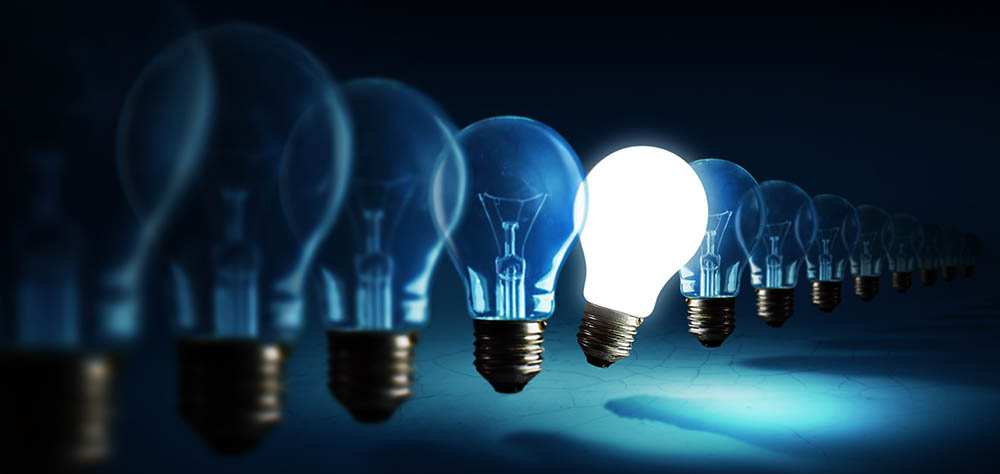Does Blue Light Keep You Awake Or Not?
- Anthony
- January 3, 2020
- 02:50 PM
- No Comments
Scientists can't seem to agree one way or the other.
Everyone knows that using gadgets like phones and tablets before trying to sleep is a bad idea. The blue light emitted by their screens plays tricks with our brains, we’re told, making it hard to nod off and get a healthy 40 winks. This idea has become accepted wisdom in recent times, with technology companies now including blue-light filtering as standard in many devices. But new evidence has emerged, suggesting that blue light isn’t a problem at all, and that warm colours are, in fact, what’s keeping people up at night. So what’s going on?
The Blue Light Blues
The reason blue light has a reputation for disrupting sleep is because it suppresses melatonin – the body’s sleep hormone. In fact, all light has this effect, to some degree, but blue light is thought to be the worst offender. Essentially, the light tricks your brain into thinking it’s daytime, so your body doesn’t produce enough of the chemical it needs to fall asleep.
It’s not a new idea either: in 1984, for example, an experiment carried out on hamsters demonstrated a clear link between blue light and melatonin suppression. More recently, separate studies from the University of Toronto and Harvard University found similar results.
This is a problem for humans, because most digital displays tend to output a lot of blue light. And not only do many of us look at screens during the day, as part of our jobs, we also look at televisions and smartphones in the evening.
You Don’t Have To Put On Your Red Light
However, just as scientists seem to fluctuate between saying wine is good for you and not good for you, you can expect to find plenty of evidence that challenges the dominant idea about blue light.
In 2018, for instance, researchers from the University of Oxford found that screen time has a minimal effect on children’s sleep patterns. The study’s author, Professor Andrew Przybylski, said, “Every hour of screen time was related to three to eight fewer minutes of sleep a night.” Not exactly a big deal. Granted, it wasn't study of blue light, but it does suggest that concerns about screens keeping people up may be unwarranted.
Turning all of this on its head, a paper published in December 2019 suggested that warm colours such as red and yellow are actually worse for our health than cool colours such as blue. More precisely, they suggest that brighter, warm colours are closer to natural light, so they’re better for us during the day, while dim, cooler colours are more beneficial at night, because they resembles twilight. Getting this wrong sends 'mixed signals' to our brains, say the researchers.
So What Should You Do?
If anything is clear, it’s that research into this subject is ongoing for a reason: how it works is still far from being fully understood. The role of melatonin, for example, is only part of the picture. Other hormones, such as melanopsin are thought to be involved in the body’s sleep functions as well.
It’s also important to realise that you would receive greater exposure to blue light simply by going outside and looking at the sky. The fact is anything that emits light of any colour is likely to keep you awake, including the bulbs you use to light your office and home, and brightness is possibly just as important as colour. So if you're going to look at your smartphone in the dark, at the very least you should dim the screen right down.
But if you really want to get a good night’s sleep, turn off the lights, shut the curtains (even streetlights can make a difference) put away the gadgets, close your eyes and relax.
Why Sleep Matters To Businesses
Business, they say, is all about people. And people need sleep. The effects of sleep deprivation on cognitive performance are well documented, but you don’t need scientists to explain this one: when you’re tired, it’s hard to think straight, to motivate yourself and to engage with others. If your job is physically challenging as well, then you will likely struggle to keep pace with co-workers.
This is a major problem for businesses the world over. It’s been estimated that the UK economy loses as much as £40 billion a year due to tired workers, who simply aren’t getting enough sleep. Short naps during the work day can go a long way toward remedying this situation, but the fact is most businesses and bosses tend to frown upon this idea.
Getting away from such traditional ideas of work and rest may be necessary to maximise productivity in the long term, but for now, it’s probably not worth fretting too much about blue light. It might be a factor in sleep disturbance, but it isn't only the light from screens that is stopping you from dozing off: the actual content likely plays role as well. The fact is anything that stimulates your mind can keep you up at night – whether it’s a thrilling TV show, a dramatic novel or a bit of hot gossip on your Facebook page.
If you are struggling to sleep, try following the NHS's advice, which includes light exercise and keeping a sleep diary.
Sweet dreams!


